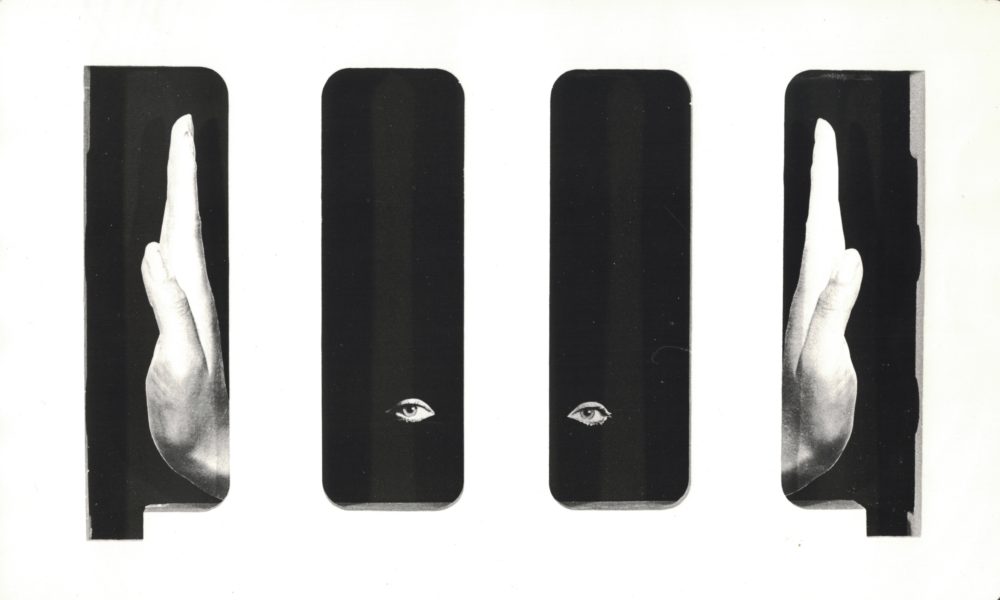From April 18 to October 6, the Fondazione Donnaregina per le arti contemporanee – museo Madre presents the exhibition Euforia Tomaso Binga, curated by Eva Fabbris with Daria Khan, exhibition design Rio Grande: it is her largest museum retrospective presenting the forty years of her artistic practice through more than one hundred and twenty works including visual poems, installations, photographs, collages, documents, and performance testimonies – many of which are being shown for the first time or decades after their first exposure – coming from museums and private collections.
The exhibition’s title emerged during conversations between the artist and Eva Fabbris: Euphoria – a word particularly beloved by Binga because it contains all vowels, phonetically universal and extrovert – becomes ‘a title-manifesto,’ explains the curator, ‘a wish, a political necessity of resistance’ and distinguishes both her approach to verbo-visual practice and feminism.
‘Binga’s work challenges social and cultural conventions,’ says Angela Tecce, president of the Fondazione Donnaregina – by exploring themes related to gender and the critique of language. (…) Emblematic examples of her contribution are the alphabets in which the artist’s body takes on the forms of letters, a synthesis of verbal and visual language.’
Tomaso Binga, stage name of Bianca Pucciarelli Menna (born in Salerno in 1931, lives and works in Rome), an artist who since 1971 has chosen to enter the world of art under a male pseudonym to highlight the privileges of men even in the field of culture: ‘My male name, – says Binga – plays on irony and disorientation; it wants to expose the male privilege that reigns in the field of art, it is a contestation by paradox of a superstructure that we have inherited and that, as women, we want to destroy. In art, gender, age, nationality should not be discriminating factors. The artist is not a man or a woman but a PERSON’.
In her 40-year practice, she has spoken of the female body as a signifier of freedom through her original visual poetry and performances, playing with words to affirm a joyful feminism characterised by desecration, humour and denunciation.
The exhibition is the result of two years of research carried out in close collaboration with the artist and her archive, with a thematic itinerary through the eighteen rooms on the third floor of the museum, with an experimental circular layout designed by the multidisciplinary collective Rio Grande in dialogue with Tomaso Binga.
Binga deals with verb-visual writing and is among the protagonists of Italian phonetic-sound-performance poetry: she took part in the famous exhibition ‘Materialisation of Language’ at the 1978 Art Biennial invited by Mirella Bentivoglio. A lecturer in Theory and Method of Mass Media at the Accademia di Belle Arti in Frosinone, she has been an active cultural organiser and has directed the cultural association ‘Lavatoio Contumaciale’ in Rome since 1974 and has been first vice-president and then president of the ‘Filiberto Menna’ Foundation in Salerno since 1992. She has participated in exhibitions and festivals at Italian and international institutions: Museo di Castelvecchio, Verona; 38., 49. and 59. Biennale Arte, Venice; XIV São Paulo do Brasil Biennial; XI Quadriennale, Rome; Fondazione Prada, Milan; Galleria Nazionale d’Arte Moderna e Contemporanea, Rome; Museion, Bolzano; Mimosa House, London; Centre d’Art Contemporain Genève, Geneva.
The book accompanying the exhibition, published by Lenz Press in Italian and English, is curated by Eva Fabbris, Lilou Vidal and Stefania Zuliani. It is divided into three parts: the first presents essays and an interview with the artist; the second a series of short critical texts analysing single works or small bodies of work from the artist’s main areas of interest; the third is dedicated to visual poetry. The publication was supported by the General Directorate for Contemporary Creativity of the Ministry of Culture in the framework of the Italian Council (2023) programme with the support of the Associazione Amici del Madre.



